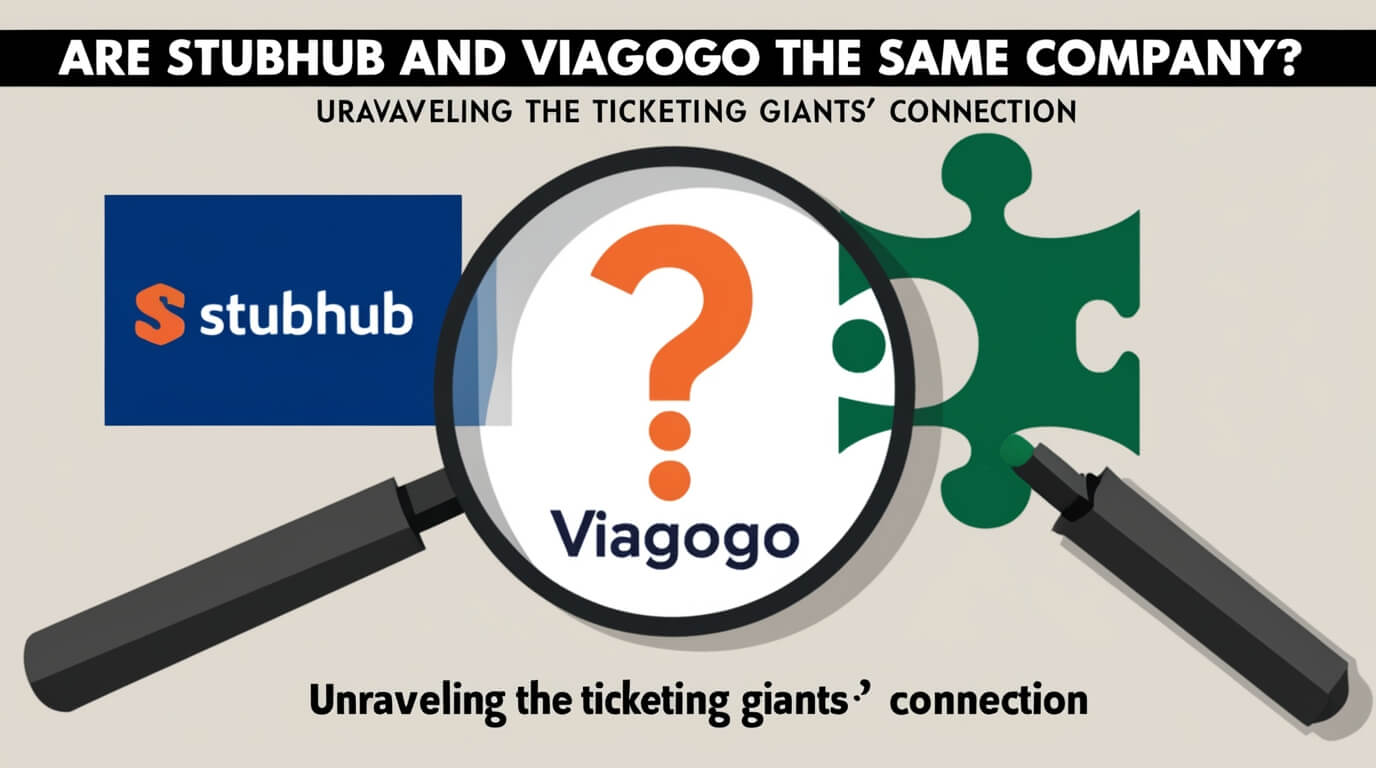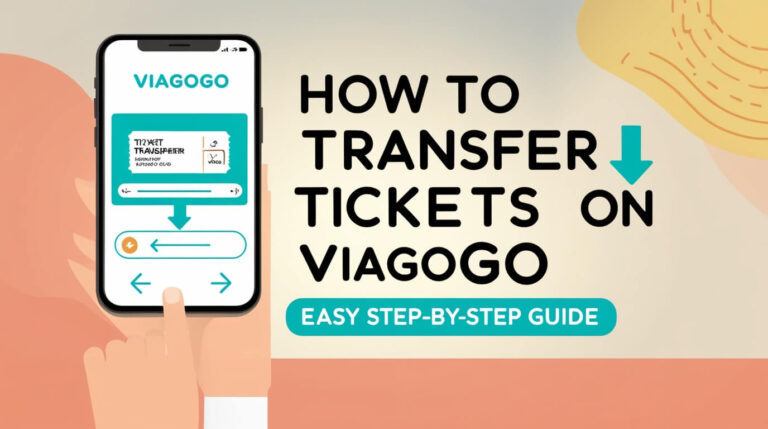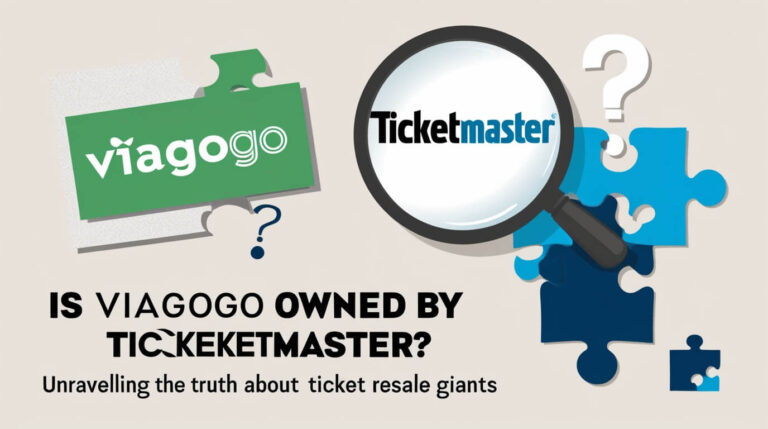
StubHub and Viagogo are not the same company, but they are owned by the same parent company, StubHub Holdings. This connection has created a complex relationship between these two ticketing giants. Let’s explore their history, current status, and what it means for ticket buyers and sellers.
The Origins of StubHub and Viagogo
StubHub’s Founding and Early Years
StubHub burst onto the scene in 2000. Two Stanford Business School students, Jeff Fluhr and Eric Baker, saw a gap in the market. They wanted to create a safe, easy-to-use platform for buying and selling tickets. Their idea took off, and StubHub quickly became a go-to site for fans looking for event tickets.
Viagogo’s Emergence in the Ticketing Market
Fast forward to 2006. Eric Baker, who had left StubHub in 2004, launched Viagogo. This new platform focused on the European market. It offered a similar service to StubHub but with a more international flavor.
The Common Thread: Eric Baker’s Role
Eric Baker’s involvement in both companies is key to understanding their connection. He co-founded StubHub and later created Viagogo. This shared history laid the groundwork for future developments.
Ownership Changes and Acquisitions
eBay’s Purchase of StubHub
In 2007, e-commerce giant eBay bought StubHub for $310 million. This move boosted StubHub’s reach and resources. Under eBay’s wing, StubHub grew into the largest ticket marketplace in the U.S.
Viagogo’s Growth and Expansion
Meanwhile, Viagogo was making waves in Europe. It expanded rapidly, becoming a major player in the international ticketing scene. The company faced some controversy but continued to grow its user base.
The 2019 Game-Changer: Viagogo Acquires StubHub
In a surprising turn of events, Viagogo bought StubHub from eBay in 2019. The price tag? A whopping $4.05 billion. This deal reunited Eric Baker with the company he co-founded nearly two decades earlier.
The Current Relationship Between StubHub and Viagogo
StubHub Holdings: The Parent Company
After the acquisition, a new entity called StubHub Holdings was formed. This company now owns both StubHub and Viagogo. While they operate under the same umbrella, they maintain separate brands and operations.
Separate Yet Connected: StubHub North America and StubHub International
To meet regulatory requirements, StubHub was split into two parts. StubHub North America focuses on the U.S. and Canadian markets. StubHub International, which was sold to Digital Fuel Capital LLC, handles events outside North America.
Technology Integration and Shared Resources
In 2022, StubHub moved its systems onto Viagogo’s tech stack. They also combined their legal departments. This integration shows how the companies are working together behind the scenes while keeping separate identities.
Operational Differences and Similarities
Geographic Focus and Market Presence
StubHub remains a powerhouse in North America. Viagogo, on the other hand, has a stronger presence in Europe and other international markets. This division allows them to cater to different audiences and events.
Ticketing Policies and User Experience
Both platforms offer similar services, but there are differences. StubHub tends to have more user-friendly policies in North America. Viagogo has faced criticism for its fees and customer service in some regions. However, both aim to provide a secure marketplace for ticket transactions.
Brand Identity and Consumer Perception
Despite their shared ownership, StubHub and Viagogo maintain distinct brand identities. StubHub is often seen as more established in the U.S., while Viagogo is known for its international reach. This separation helps them appeal to different customer bases.
Legal and Regulatory Landscape
Antitrust Concerns and Regulatory Scrutiny
The merger of StubHub and Viagogo raised eyebrows among regulators. Concerns about market dominance led to the split of StubHub’s international business. Both companies continue to navigate complex regulatory environments in different countries.
Compliance with International Ticketing Laws
Ticket resale laws vary widely around the world. StubHub and Viagogo must adapt to these different rules. This challenge is one reason why they maintain separate operations in different regions.
Consumer Protection Measures
Both platforms have implemented various measures to protect buyers and sellers. These include guarantees, secure payment systems, and fraud prevention tools. However, the effectiveness of these measures can vary between the two companies.
The Impact on the Ticketing Industry
Market Dominance and Competition
The combination of StubHub and Viagogo created a ticketing powerhouse. This has led to concerns about reduced competition in the secondary ticket market. Smaller competitors and primary ticket sellers are feeling the pressure.
Innovation in Secondary Ticketing
On the flip side, the merged resources of StubHub and Viagogo could drive innovation. We might see new features, better technology, and improved user experiences in the future.
Challenges and Opportunities for Growth
The ticketing industry faces ongoing challenges. Issues like ticket bots, fraud, and dynamic pricing affect both companies. How StubHub and Viagogo address these problems could shape the future of event ticketing.
Consumer Implications: What It Means for Ticket Buyers and Sellers
Pricing and Availability of Tickets
The merger could impact ticket prices and availability. With less competition, there’s a risk of higher prices. However, the combined platform might also offer a wider selection of tickets for popular events.
Customer Support and Dispute Resolution
Customers might see changes in how support is handled. The integration of systems could lead to more streamlined processes. But it’s crucial to watch how each brand maintains its customer service standards.
Cross-Platform Benefits and Limitations
Users might wonder if they can use their accounts across both platforms. Currently, StubHub and Viagogo maintain separate user bases. This separation means limited cross-platform benefits for now.
The Future of StubHub and Viagogo
Potential for Further Integration
While StubHub and Viagogo operate separately now, further integration is possible. We might see more shared features or even a unified platform in the future. This could simplify the ticket-buying process for users.
Expansion Plans and Market Strategies
Both companies are likely to continue expanding. StubHub might focus on strengthening its North American dominance. Viagogo could look to grow in emerging markets. Their combined resources give them a strong foundation for growth.
Adapting to Post-Pandemic Event Ticketing
The COVID-19 pandemic hit the event industry hard. As we move forward, StubHub and Viagogo will need to adapt. This might include new policies for event cancellations or virtual event ticketing.
Frequently Asked Questions
Are ticket prices the same on both platforms?
Ticket prices can vary between StubHub and Viagogo. Local market demand, fees, and available inventory can cause price differences.
How does the merger affect international events?
For international events, you’ll likely use Viagogo or StubHub International. StubHub North America focuses on U.S. and Canadian events.
Is one platform more reliable than the other?
Both platforms offer buyer guarantees. However, user experiences can vary. It’s always wise to read the terms and conditions before purchasing.
Conclusion
While StubHub and Viagogo share a parent company, they remain distinct entities. Their complicated relationship reflects the complex world of online ticketing. As ticket buyers and sellers, it’s important to understand how these platforms operate.
The future of StubHub and Viagogo is intertwined, but their brands persist. Their combined influence on the ticketing industry is significant. Consumers should stay informed about changes that might affect their ticket-buying experience as they continue to evolve.
Remember, whether you’re using StubHub or Viagogo, always buy tickets carefully. Check the details, understand the fees, and know your rights as a buyer. The world of online ticketing can be tricky, but knowledge is your best defense against potential issues.






